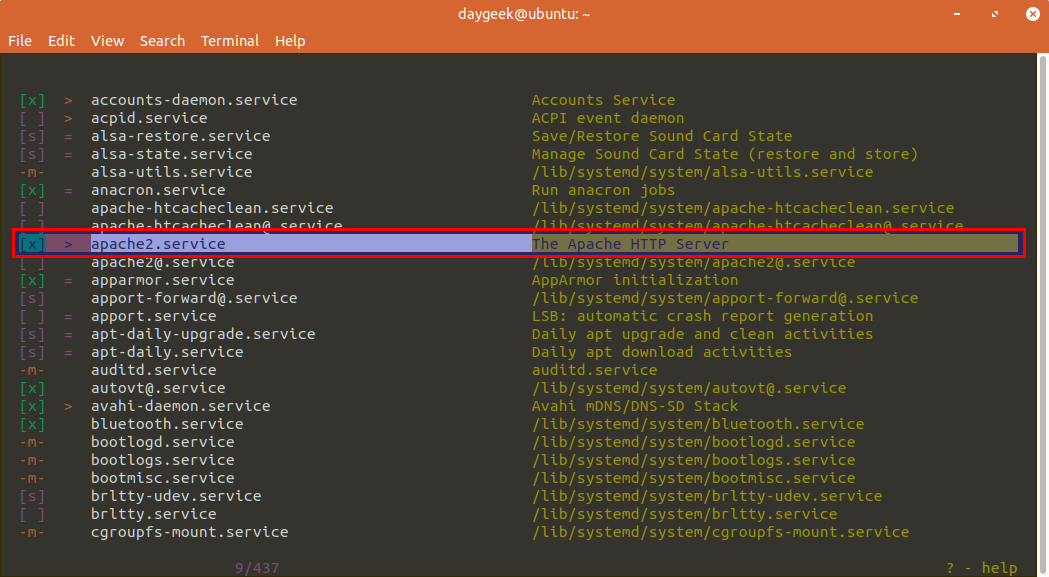4.8 KiB
translating by amwps290 chkservice – A Tool For Managing Systemd Units From Linux Terminal
systemd stand for system daemon is a new init system and system manager which is become very popular and widely adapted new standard init system by most of Linux distributions.
Systemctl is a systemd utility which is help us to manage systemd daemons. It control system startup and services, uses parallelization, socket and D-Bus activation for starting services, offers on-demand starting of daemons, keeps track of processes using Linux control groups, maintains mount and automount points.
Also it offers logging daemon, utilities to control basic system configuration like the hostname, date, locale, maintain a list of logged-in users and running containers and virtual machines, system accounts, runtime directories and settings, and daemons to manage simple network configuration, network time synchronization, log forwarding, and name resolution.
What Is chkservice
chkservice is an ncurses-based tool for managing systemd units from the terminal. It provides the user with a comprehensive view of all systemd services and allows them to be changed easily.
It requires super user privileges to make changes into unit states or sysv scripts.
How To Install chkservice In Linux
We can install chkservice in two ways, either package or manual method.
For Debian/Ubuntu , use APT-GET Command or APT Commandto install chkservice.
$ sudo add-apt-repository ppa:linuxenko/chkservice
$ sudo apt-get update
$ sudo apt-get install chkservice
For Arch Linux based systems, use Yaourt Command or Packer Command to install chkservice from AUR repository.
$ yaourt -S chkservice
or
$ packer -S chkservice
For Fedora , use DNF Command to install chkservice.
$ sudo dnf copr enable srakitnican/default
$ sudo dnf install chkservice
For Debian Based Systems , use DPKG Command to install chkservice.
$ wget https://github.com/linuxenko/chkservice/releases/download/0.1/chkservice_0.1.0-amd64.deb
$ sudo dpkg -i chkservice_0.1.0-amd64.deb
For RPM Based Systems , use DNF Command to install chkservice.
$ sudo yum install https://github.com/linuxenko/chkservice/releases/download/0.1/chkservice_0.1.0-amd64.rpm
How To Use chkservice
Just fire the following command to launch the chkservice tool. The output is split to four parts.
First Part:This part shows about daemons status like, enabled [X] or disabled [] or static [s] or masked -m-Second Part:This part shows daemons status like, started [ >] or stopped [=]Third Part:This part shows the unit nameFourth Part:This part showing the unit short description
$ sudo chkservice
To view help page, hit ? button. This will shows you available options to manage the systemd services.
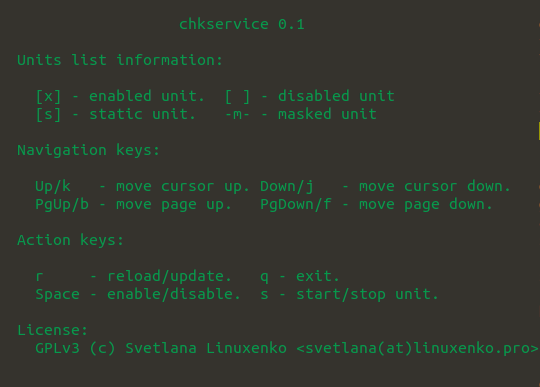
Select the units, which you want to enable or disable then hit Space Bar button.
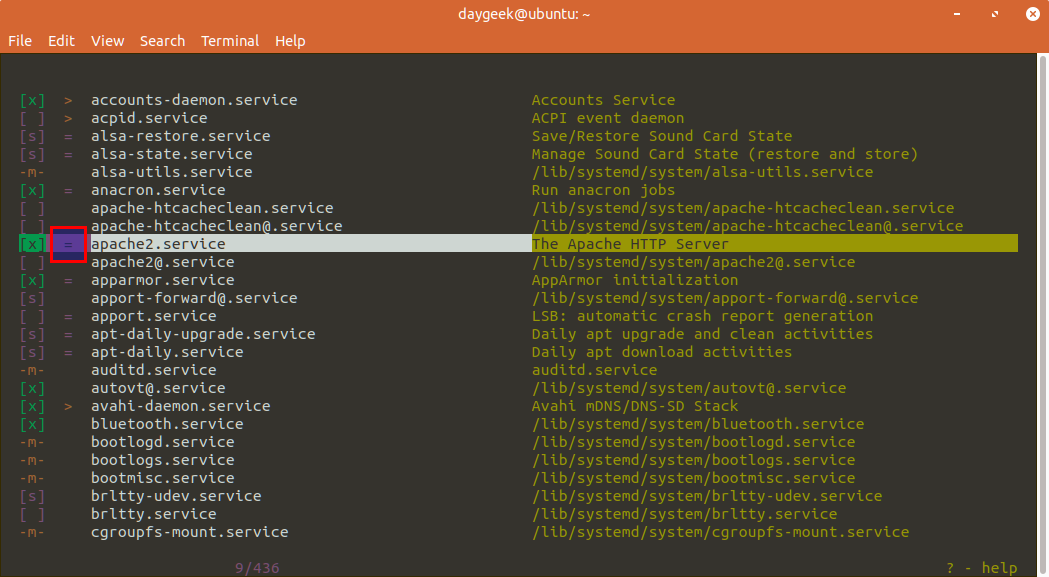
Select the units, which you want to start or stop then hit s button.
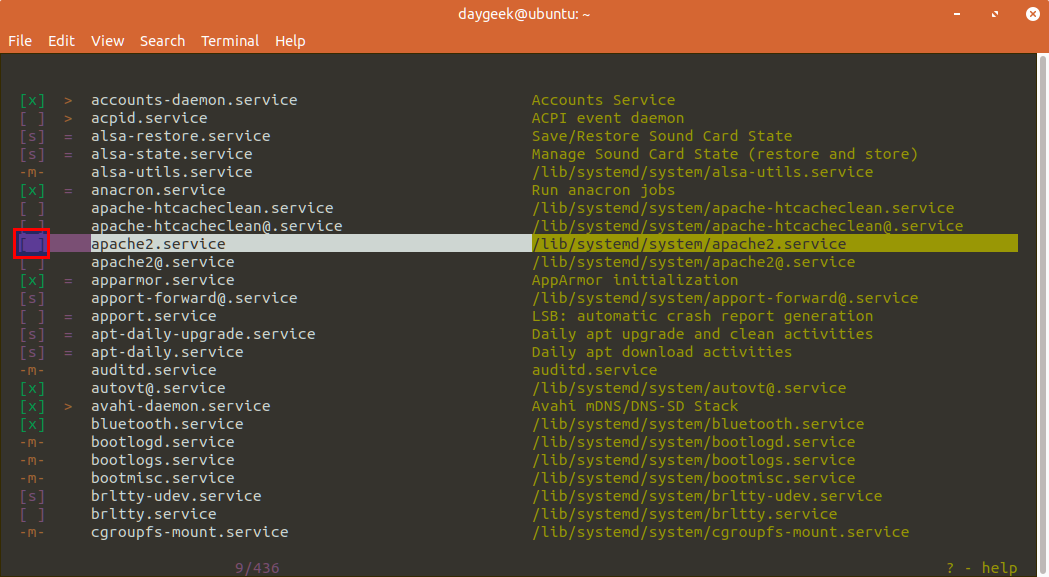
Select the units, which you want to reload then hit r button. After hit r key, you can see the updated message at the top.
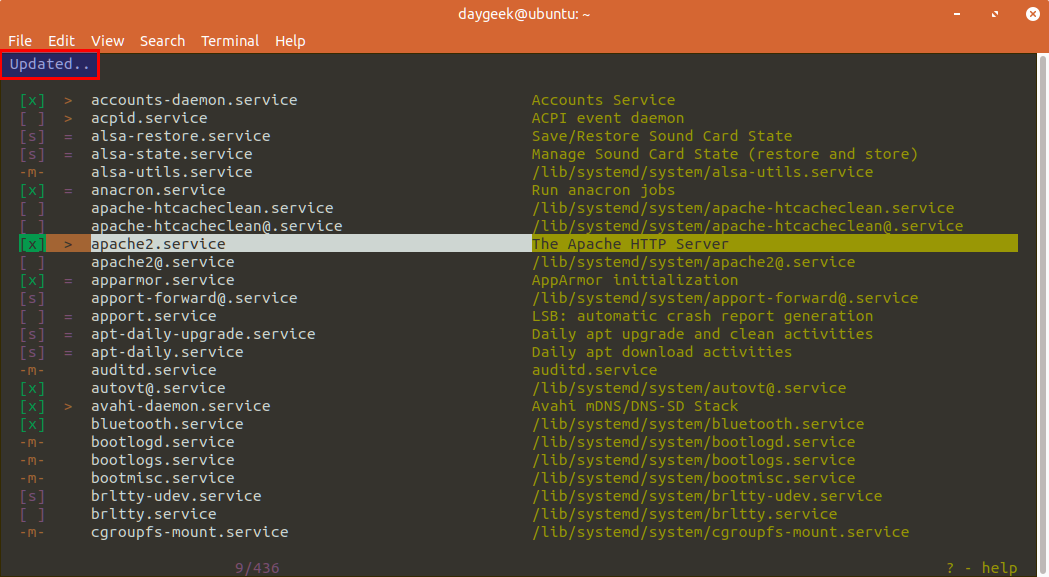
Hit q button to quit the utility.
via: https://www.2daygeek.com/chkservice-a-tool-for-managing-systemd-units-from-linux-terminal/
作者:Ramya Nuvvula 译者:译者ID 校对:校对者ID
